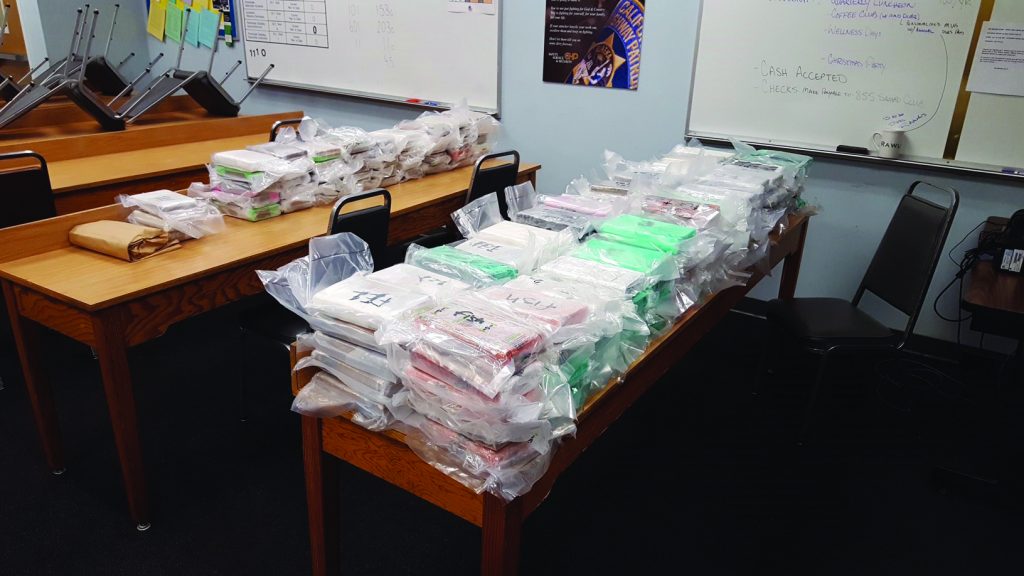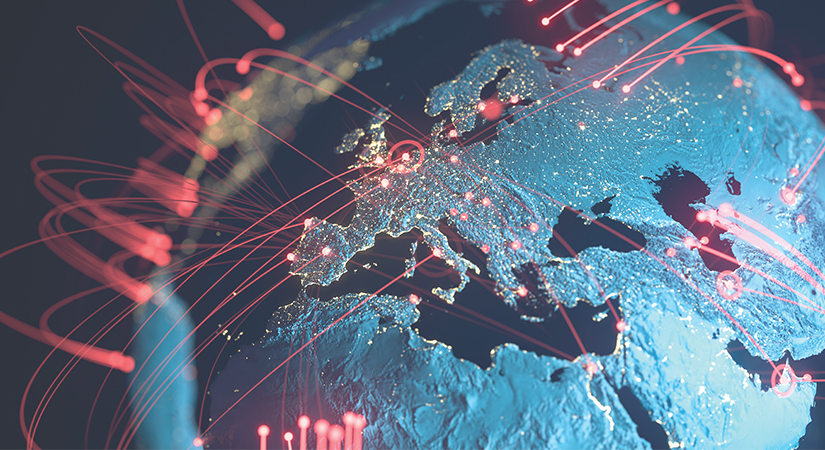The concept of transnational organized crime is not easily determinable since there is no definition, neither in criminal law nor in criminology. Transnational criminal organizations differ substantially from each other in organizational structure, types of activity, size, and territorial extension. However, several peculiar elements are evident in mafias all over the world.
First, these criminal organizations commit crimes using violence when they fail to impose themselves through corruption. Furthermore, criminal groups always operate under the direction of leaders (bosses or mafia bosses), and although they are well organized, their structure is only partially permanent and changes to fit the situation, especially when the group operates outside its own territory. Transnational organized crime acts through a network of homogeneous groups connected to each other in a full regime of solidarity, complicity, and hierarchical order. To achieve their goals and protect immeasurable economic interests, these organizations are willing to use any tool, violent or not, to enhance their economic and commercial interests across the globe.
The Impact of Globalization
As it is not hard to understand in today’s world, the practices of transnational organized crime are almost never limited to national borders. There have been many doctrinal debates focused on the relationship between globalization and organized crime, but it seems clear that it has been especially useful for expanding these groups’ criminal interests internationally. It has also facilitated worldwide trade and the exchange of goods—while also increasing the difficulty of preventing illegal activities and the enforcement of laws intended to regulate these occurrences. The globalized financial system and the consequent deregulation has facilitated money laundering, allowing the world’s mafias to hide their illicit profits. In other words—although this may seem a reckless thesis—the author is convinced that the mafias benefit above all from financial deregulation because it provides the path for them to launder money through placement, stratification, and full integration into the legal financial system.
The process of globalization in its temporal development has generated both winners and losers. Its disruptive effect has, in practice, caused greater inequality and poverty around the world. Small companies and many families have gone bankrupt. These effects have made the mafias stronger, as they have been able to offer opportunities and work. The global mafias have been able to make the most of the negative effects of globalization processes by expanding their networks of influence and power in every part of the world. The illicit activities of criminal organizations prosper just like the legal ones and range from technological advances in the transport sector to telecommunications. There are even direct links between technological progress and economic liberalization. The removal of obstacles to international trade in goods and the free flow of funds have also facilitated cross-border illicit trafficking by mafias. They currently have access to cutting-edge technologies (airplanes, submarines, drones) for trafficking drugs, human beings, and organs. They also use complex financial and IT operations (most recently bitcoins) to launder dirty money through lawful activities.
Transnational Crime Demands Transnational Strategies
While governments and law enforcement deal with mafias at a national level, the power of transnational organized crime has grown dramatically, in some cases undermining the democratic foundations of some countries. The new challenges of global crime that mainly come from infiltrations into the economic and financial system can no longer be ignored—countries must find effective strategies to control the illegal economy that revolves around transnational organized crime. The harmonization of laws across various nations is only one of the challenges to be addressed as soon as possible. Another major challenge lies in the “rules” of the global market. The criminal economy is against the laws of the countries, but not against those of the markets. It is also possible to economize outside or even against the law, and the mafias are the most authentic demonstration of this. It is no coincidence that the main world mafias (Italian, Russian, Chinese, Japanese, and South American) constitute the economic power in many developing countries and are capable of overturning the rules of the market, of conditioning the legal economy and democracy. Without new European and international regulatory interventions on occult economies and tax havens, starting with the breakdown of economic relations and financial embargoes, there is no progress because the “war” is fought with blunt weapons.

Twenty years after the UN Palermo Convention against Transnational Organized Crime (UNTOC), despite the undoubted progress in the field of international judicial cooperation, some critical points still emerge from the practice of law enforcement. The result is a constant challenge to the rule of law and fundamental rights, which also undermines people’s right to safety and their trust in public authorities. Even the phenomenon of international terrorism, in its current form, knows no borders of states and regions. To be effective, the fight against terrorism should be conducted in connection with the fight against other forms of organized crime and with a united spirit among all the institutions involved. The fight against the phenomenon of narco-terrorism and, more generally, the deadly combination of terrorism and organized crime-for the trafficking of arms and human beings, for the smuggling of oil, for kidnapping for the purpose of extortion, and for the financing of terrorism itself—would require not only a joint commitment but, above all, a “recognition” of the existence of this functional link between crime and terror.
Fortunately, in the most recent practice, there have been very significant cases of use of the Palermo Convention for the purposes of international cooperation against international terrorism, for example, in the South American and North African context. In this context, the contrasting of assets and the recovery of the proceeds of crime should be a primary objective for all countries that intend not only to “contain” but to defeat criminal organizations. To this end, it is not enough to arrest those responsible without confiscating their assets and sending them to social reuse. However, the cross-border dimension of mafia organizations requires effective and rapid forms of judicial and police cooperation, strongly favoring the moment of international coordination aimed at collecting evidence and identifying personal and property objectives. Moreover, it would be completely illusory to think that the dimension of transnational organized crime, which is increasingly active in criminal trafficking involving other continents in a structured and intense way, can be countered with the singular action of European countries without establishing enhanced cooperation with a wide range of countries located outside the European Union. A clear sign of the lack of a shared strategy is provided by the different approaches in defining threats and risks: a fragmentation that considerably restricts the possibility of exercising effective contrast. Sometimes, it is a question of strategic myopia that weakens the force of supranational legislative and operational action.
“Money laundering is the essence of organized crime.”
The close correlation between the qualification as a “right” of international law and the existence of mechanisms that guarantee its application should also be noted. For the Palermo Convention and its additional protocols (aimed at combating trafficking in human beings, the illegal smuggling of migrants, the illicit manufacturing and trafficking of firearms), the provision of adequate international control mechanisms on compliance of the commitments undertaken by the countries is crucial to ensure their effective implementation. It is clear that the failure to implement a specific mechanism to verify the degree of compliance with the commitments undertaken represents, on a universal level, a missed opportunity. This gap was filled by implementing the provision of Article 32 of the Palermo Convention, according to which the Conference of States parties must adopt a mechanism for periodic review of the implementation of the provisions. The mechanism is aimed at exchanging the information necessary for the better functioning of international cooperation, identifying the gaps that prevent the effective fight against the criminal phenomena emerging globally, and promoting the necessary legislative and organizational reforms in all the countries involved. On the occasion of the 20th anniversary of the UNTOC Convention, the Conference of the Parties has therefore launched the revision mechanism of the Palermo Convention (already adopted in 2018) with the October 16, 2020, resolution—called the “Falcone Resolution,” in tribute to the magistrate, a symbol of the commitment to justice and international cooperation—proposing for the first time instruments to combat transnational organized crime as part of a global, economic-financial, and digital strategy, in line with the one being adopted in European Union legislation. The new European strategy against transnational organized crime and trafficking in human beings, communicated on April 14, 2021, which follows the cybersecurity and the new anti-terrorism agenda by a few months and anticipates the anti–money laundering one, responds in full harmony to the Falcone Resolution.
The European strategy launches and updates the instruments of the Palermo Convention that the countries of the European Union have (to varying degrees) developed over the past 20 years, offering new ideas for ever closer cooperation between the United Nations and the European Union. The first point of the new strategy is the facilitation of the exchange of information and timely access to it through the expansion of Europol’s powers, including in cooperation with third countries, the interoperability of databases, and a new dedicated platform for the exchange of information and electronic evidence between investigators and magistrates, increasingly crucial in the digital age.
Combating Money Laundering
Money laundering is the essence of organized crime; financial investigations are the most challenging, but inevitable, frontier of investigative and judicial action. There is still a long way to go toward satisfactory solutions. To take just one recent example, the international journalistic investigation into recycling centers, known as “FINcen Files,” showed the failure of anti–money laundering rules in the face of aiding and abetting behavior of banks and financial operators who continue to profit from crime. In fact, thousands of suspicious financial transactions organized by the same credit and financial institutions have been revealed, most likely intended to launder illicit proceeds. It is yet another confirmation that the true strength of transnational organized crime (mafia, economic-financial, and terrorist) lies outside the criminal groups themselves, instead being derived from the accomplices in political and financial institutions, often in the shadow of complacent or corrupt regimes. Faced with the increase in such illegal activities, international anti–money laundering legislation is not only unimplemented in many countries, but also has the limit of being too disorganized, fragmented along national lines that lead to a mosaic of rules, often leaving loopholes that are easily exploited by criminals and their accomplices. This exploitation is all the more serious and unacceptable at a time when the economic catastrophe induced by the coronavirus pandemic is opening up enormous spaces of operation to criminal organizations, whose appetites are certainly enticed by the enormous flow of money that will be disbursed to support the economic recovery and an eco-sustainable development that risks being held back by criminal infiltration into procurement and economic exchanges.

To combat money laundering, it will therefore be necessary to take further and decisive steps in the direction of an integrated system that is capable not only of guaranteeing the effective implementation of the existing legislative framework, but also of coordinating supervision of anti–money laundering efforts. To this end, the establishment of a new European anti–money laundering authority, with supervisory tasks, and a coordination mechanism will be of fundamental importance. Such a body will improve the effectiveness of the transmission of financial information and allow the interconnection of centralized national bank account registers and timely cross-border access to information. Only a global financial system, solidly supported by a harmonized legal framework and effective judicial cooperation, will be able to make use of adequate tools to respond to the continuing challenge posed by criminals and terrorists who are never unprepared—it must be repeated—to derive illicit advantages from the gaps and weaknesses of national regulatory systems. d
Please cite as
Franco Roberti and Vincenzo Musacchio, “The Fight Against the New Mafias: The Critical Need for Transnational Cooperation,” Police Chief Online, June 21, 2022.



